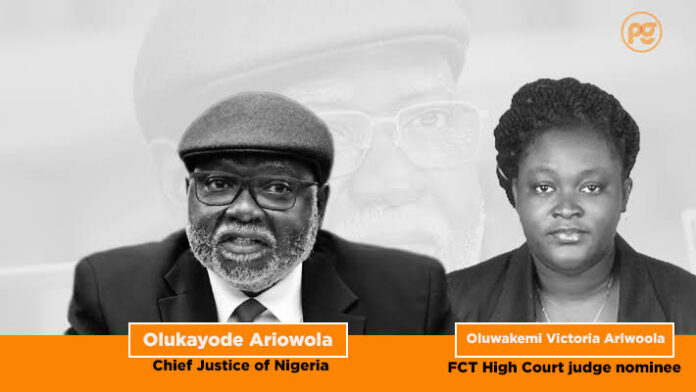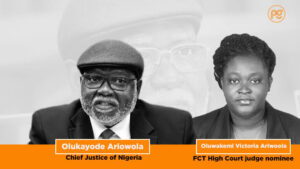Justice Olukayode Ariwoola, the outgoing Chief Justice of Nigeria, has come under fire for allegedly appointing several family members to key judicial positions during his two-year tenure. Critics, including human rights activist and lawyer Chidi Anselm Odinkalu, accuse Ariwoola of nepotism, claiming that his actions demonstrate a blatant disregard for the Judicial Code of Conduct, which prohibits such favoritism.
Among the appointments, Ariwoola is said to have appointed his son as a judge of the Federal High Court and his daughter-in-law as a judge of the High Court of the Federal Capital Territory. Additionally, he appointed his brother as an auditor of the National Judicial Council (NJC), which he chairs, and another family member as a Justice of the Court of Appeal.
Ariwoola is set to retire on August 22, 2024, upon reaching the mandatory retirement age of 70. His tenure has been marked by controversy, with allegations that he prioritized the welfare of his family over the integrity of the judicial system. Critics argue that his actions reflect a troubling trend of nepotism within the judiciary.
In his final meeting as Chair of the NJC, Ariwoola reportedly appointed two sisters to judicial positions: one to the High Court of Kwara State and the other to the High Court of Ondo State. Just a month prior, he had appointed their brother as a judge of the High Court of the Federal Capital Territory. Odinkalu pointed out that the sisters’ father was a notable benefactor within the judicial system, adding to concerns about conflicts of interest.
Odinkalu also highlighted a troubling incident from 2020, when a lawyer was sanctioned for attempting to elevate his status to Senior Advocate of Nigeria (SAN) by manipulating Supreme Court judgments. He noted that just 21 days before leaving office, Ariwoola rushed through new elevations, promoting the same lawyer to SAN despite questions about his integrity.
At a special session of the Supreme Court in November 2023, Ebun Sofunde, a Senior Advocate of Nigeria, expressed concerns about the judiciary’s reputation, stating it is “at an all-time low.” Sofunde emphasized that Supreme Court judgments under Ariwoola had become “perfunctory,” further tarnishing the credibility of the judicial system.
Odinkalu criticized Ariwoola’s tenure, stating that while he took office amid a significant decline in public trust in the judiciary, he failed to prioritize efforts to restore that confidence. Instead, he accused Ariwoola of focusing on personal gains and the welfare of his family and community in Iseyin, Oyo State.
As the Chief Justice prepares to exit his position, his legacy is under scrutiny. Observers are concerned that the appointments made during his tenure could have lasting implications for the integrity and public perception of Nigeria’s judicial system. The situation raises important questions about the future of judicial appointments and the need for transparency and accountability in the Nigerian judiciary.
In light of these developments, many hope that the incoming Chief Justice will prioritize restoring public trust and ensuring that judicial appointments are made on merit rather than familial connections.





